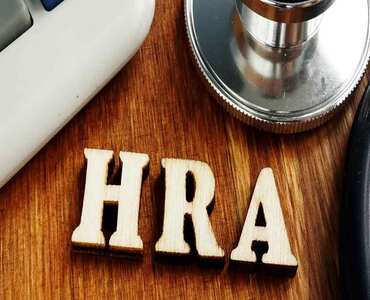A salaried person knows that House rent allowance (HRA) is a tax planning/tax saving tool. For salaried person HRA is primary part that save hefty amount of income tax. Often company makes a structure in a way that can save more income tax. Few companies allow its employees at the time of joining to structure their salary themselves or hire income tax consultant that may help the employees to reduce tax liabilities.

Income tax act grants exemption of HRA under section 10(13A) received by an employee for his employer during the year. Rule 2A prescribed the quantum of exemption available to the taxpayer. HRA is not defined under the income tax act, however what has to be included in salary for HRA calculation is clearly specified. In simple term HRA is defined as a component of salary paid by employer to the employee for accommodation regular expenses of renting a place where he resides. Supreme court in a case of Karamchari Union v. Union of India [2000] 243 ITR 143 held that House Rent Allowance are taxable as ‘profits in lieu of salary’.
Let us under the provisions of income tax applicable on HRA and how you can save it by legitimate tax planning.
1. Quantum of exemption available
To claim the exemption, one needs to see the city where he resides. Income tax has divided the place of accommodation into:
- Major cities, i.e., Mumbai, Delhi, Calcutta and Chennai, and
- other places.
Least of the following is allowed as exemption:
| S No. | Calculation |
| 1 | HRA actually received from employer |
| 2 | Rent paid minus 10% of salary |
| 3 | 50% of salary for major cities Or 40% in case of non-major cities) |
It is to be noted that where rent paid is less than or equal to salary, the amount of exemption will be ‘NIL’
ILLUSTRATION
An employee working in Gurgaon is in receipt of house rent allowance of Rs. 1,20,000 p.a. He is occupying a residential accommodation, for which rent paid by him is Rs. 1,44,000 p.a. He is getting a salary of Rs. 4,80,000 p.a. and dearness allowance of Rs. 1,20,000 p.a. which counts for retirement benefits.
Exemption is worked out as follows:
1. HRA received = 1,20,000
2. Rent paid minus 10% of salary (1,44,000 – 60,000) = 84,000
3. 40% of salary (6,00,000×40%) = 2,40,000
Admissible exemption is from the lower of the above three = 84,000
Taxable HRA (1,20,000-84,000) = 36,000
2. Meaning of Salary
Salary includes:
- Basic Salary
- Dearness allowance (if it forms part of the retirement benefits)
- Commission received based on percentage of turnover
Thus, ‘salary’ does not include other allowances & perquisites.
Contractual bonus will form part of ‘salary’—CBDT Circular No. 80, dated 4-3-1972. It was however held in the case of CIT v. B. Ghosal [1980] 125 ITR 744 (Ker.) that, for the purpose of rule 2A, salary will not include bonus
3. Evidence to claim HRA
To claim the HRA exemption taxpayer should maintain the following documents:
- Rent agreement/ Leave and licence agreement,
- Rent receipt
- Proof of payment (i.e. Bank statement if payment made through banking channel)
- These are the few primary documents that may help you in assessment proceeding. Moreover, you should maintain other supporting documents that help to make your income tax case strong such as Payment of Water bill, Electricity bill, Letter to society intimating about her tenancy, etc.
Further Rule 26C provides that the taxpayer shall furnish
- name,
- address and
- PAN of the landlord(s)
where the aggregate rent paid during the previous year exceeds Rs. 1,00,000. The particulars will be furnished in Form No. 12BB.
4. Tax planning through HRA:
Payment of Rent to relatives like mother, father, brother, wife, husband for accommodation of house is allowable for exemption, provided you have maintained all supporting documents mentioned above. Rent paid to parents is a tax planning tools however assessing office generally questions this transaction. Hence the entire proceeding of HRA is based on the evidence you maintain.
Note:
- If an individual opts for alternative tax regime under section 115BAC, exemption under section 10(13A) is not available.
- There is no requirement that employee should not own a house to claim exemption of HRA. If employee is living in rented premises, he can claim the exemption under section 10(13A)
For any information/query/concerns related to income tax provisions, please feel free to contact us at mail@nbaoffice.com






